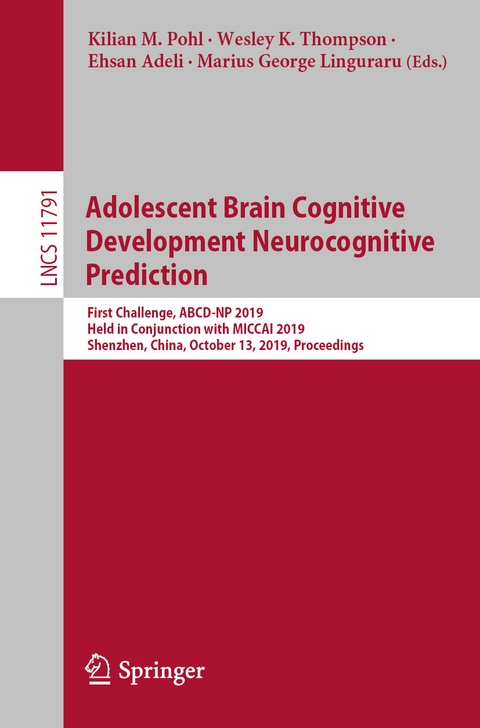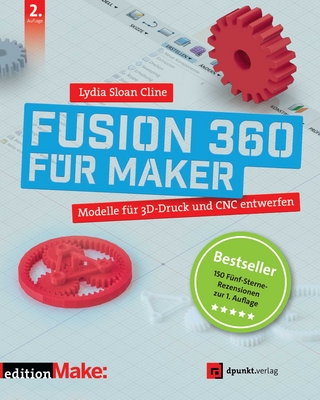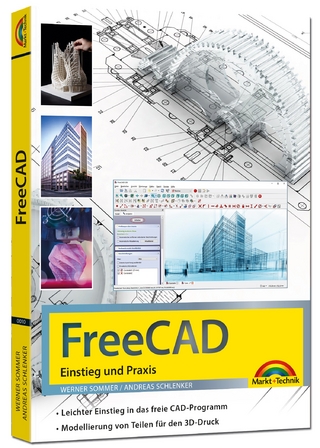
Adolescent Brain Cognitive Development Neurocognitive Prediction
Springer International Publishing (Verlag)
978-3-030-31900-7 (ISBN)
29 submissions were carefully reviewed and 24 of them were accepted.
This book constitutes the refereed proceedings of the First Challenge in Adolescent Brain Cognitive Development Neurocognitive Prediction, ABCD-NP 2019, held in conjunction with MICCAI 2019, in Shenzhen, China, in October 2019.
29 submissions were carefully reviewed and 24 of them were accepted. Some of the 24 submissions were merged and resulted in the 21 papers that are presented in this book. The papers explore methods for predicting fluid intelligence from T1-weighed MRI of 8669 children (age 9-10 years) recruited by the Adolescent Brain Cognitive Development Study (ABCD) study; the largest long-term study of brain development and child health in the United States to date.
A Combined Deep Learning-Gradient Boosting Machine Framework for Fluid Intelligence Prediction.- Predicting Fluid Intelligence of Children using T1-weighted MR Images and a StackNet.- Deep Learning vs. Classical Machine Learning: A Comparison of Methods for Fluid Intelligence Prediction.- Surface-based Brain Morphometry for the Prediction of Fluid Intelligence in the Neurocognitive Prediction Challenge 2019.- Prediction of Fluid Intelligence From T1-Weighted Magnetic Resonance Images.- Ensemble of SVM, Random-Forest and the BSWiMS Method to Predict and Describe Structural Associations with Fluid Intelligence Scores from T1-Weighed MRI.- Predicting intelligence based on cortical WM/GM contrast, cortical thickness and volumetry.- Predict Fluid Intelligence of Adolescent Using Ensemble Learning.- Predicting Fluid Intelligence in Adolescent Brain MRI Data: An Ensemble Approach.- Predicting Fluid intelligence from structural MRI using Random Forest regression.- Nu Support Vector Machinein Prediction of Fluid Intelligence Using MRI Data.- An AutoML Approach for the Prediction of Fluid Intelligence From MRI-Derived Features.- Predicting Fluid Intelligence from MRI images with Encoder-decoder Regularization.- ABCD Neurocognitive Prediction Challenge 2019: Predicting individual residual fluid intelligence scores from cortical grey matter morphology.- Ensemble Modeling of Neurocognitive Performance Using MRI-derived Brain Structure Volumes.- ABCD Neurocognitive Prediction Challenge 2019: Predicting individual fluid intelligence scores from structural MRI using probabilistic segmentation and kernel ridge regression.- Predicting fluid intelligence using anatomical measures within functionally defined brain networks.- Sex differences in predicting fluid intelligence of adolescent brain from T1-weighted MRIs.- Ensemble of 3D CNN regressors with data fusion for fluid intelligence prediction.- Adolescent fluid intelligence prediction from regional brain volumes and cortical curvatures using BlockPC-XGBoost.- Cortical and Subcortical Contributions to Predicting Intelligence using 3D ConvNets.
| Erscheinungsdatum | 10.10.2019 |
|---|---|
| Reihe/Serie | Image Processing, Computer Vision, Pattern Recognition, and Graphics | Lecture Notes in Computer Science |
| Zusatzinfo | XI, 188 p. 57 illus., 49 illus. in color. |
| Verlagsort | Cham |
| Sprache | englisch |
| Maße | 155 x 235 mm |
| Gewicht | 314 g |
| Themenwelt | Informatik ► Grafik / Design ► Digitale Bildverarbeitung |
| Informatik ► Theorie / Studium ► Künstliche Intelligenz / Robotik | |
| Schlagworte | ABCD • Adolescence Brain Cognitive Development study • Applications • Artificial Intelligence • Child Health • Computer Science • conference proceedings • Data Mining • decision trees • fluid intelligence • Image Processing • Informatics • machine learning • Magnetic Resonance Imaging • Medical Image Computing • Medical Imaging • MRI • Neural networks • neurocognitive prediction • pattern recognition • Regression Analysis • Regression model • Research • Support Vector Machines • SVM |
| ISBN-10 | 3-030-31900-8 / 3030319008 |
| ISBN-13 | 978-3-030-31900-7 / 9783030319007 |
| Zustand | Neuware |
| Haben Sie eine Frage zum Produkt? |
aus dem Bereich


